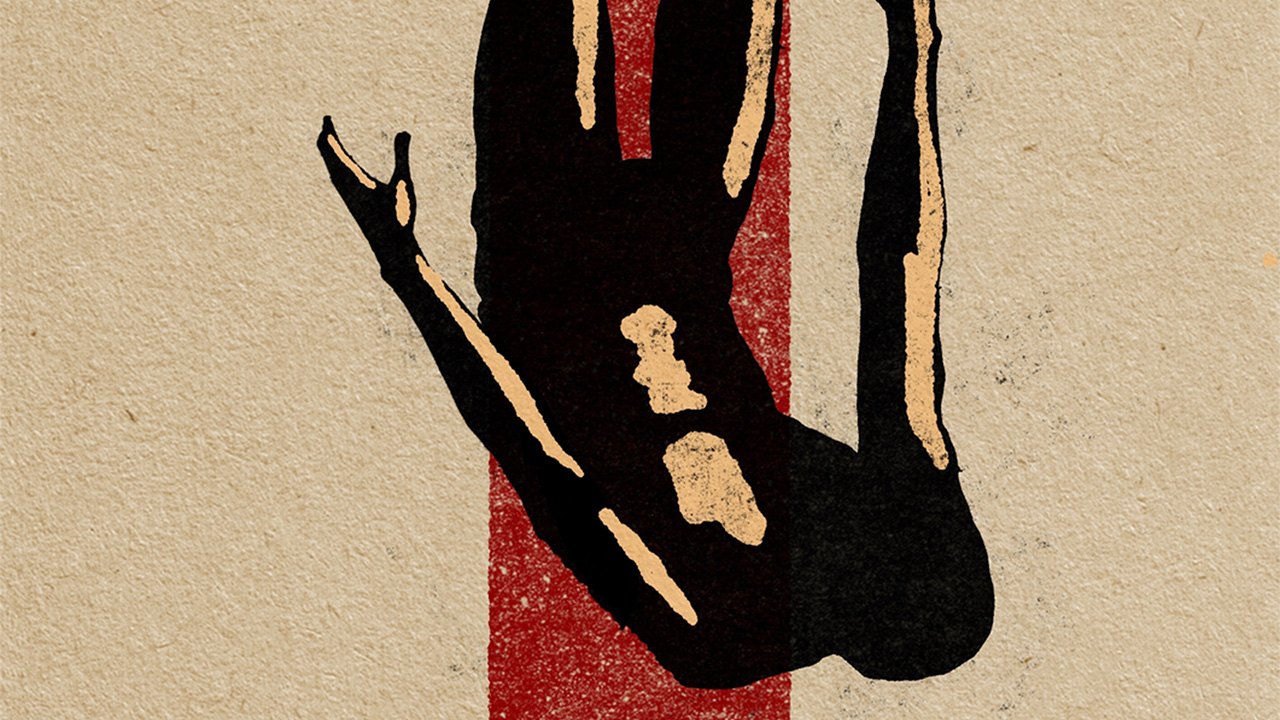This essay originally appeared in the Common Good Monthly email. If you don't already, sign up here for an original article, essay, or interview on the first Monday of each month.
From the Editor
What’s on your ballot?
We’ve been talking about the election all year long at Common Good — asking questions on Christian political vocation, how to think about faith and politics, and more.
Need a recap on that conversation?
Try these.
- Election year rule
No. 1 - How to have a good-faith debate
- The “how” of politics, according to the After Party project
- Some books on faith and politics
These are great places to start. But there’s a significant space (or place) we haven’t yet covered — and that we can’t afford to forget. Our own backyards and the neighbors and issues that live there.
Yes, Americans will vote in the presidential election. And depending on where you live in the U.S., you will likely be asked to vote on a few other items, too. In this month’s newsletter, Aaron Childree writes about why those items matter.
“No matter where you live in the U.S., county commissions, city councils, school boards, and the staff that work with these officials are likely considering a number of important issues at this very moment,” Aaron writes.
According to the National Civic League, a nonpartisan nonprofit that focuses on civic engagement as a way forward toward thriving communities, these issues add up. “In the U.S. we elect more than 500,000 local officials who control over $2 trillion in local government spending.”
Now, a few dispatches from the local scene in “one of the nation’s new political bellwethers,” Cobb County, Georgia. —Sarah Haywood, managing editor
Georgia’s Cobb County, a large county in the southwest corner of Atlanta, looms large in national politics today. In fact, the US News and World Report has dubbed it one of its 15 “battleground counties” for the 2024 election. The report notes the county’s diverse population and its role in moving Georgia from the Republican to the Democratic column in the 2020 presidential election — the first time a Democrat has won the state since 1992.
For all its importance in national politics, Cobb County is like every other county in the U.S. in one critical way — many of the political decisions that impact the everyday lives of the county’s residents are made at the local level. No matter where you live in the U.S., county commissions, city councils, school boards, and the staff that work with these officials are likely considering a number of important issues at this very moment.
The people that make up these governing bodies come from a variety of backgrounds, and they all have their own stories of what inspired them to get involved in politics and what got them to where they are today. Here are a few of those stories from one of the nation’s new political bellwethers.
Creating Systemic Change on the Cobb County Commission
Cobb County Commissioner Jerica Richardson’s first lesson in the influence of politics came in the wake of the September 11th terrorist attacks on the World Trade Center. Even as a middle schooler, the connection between the cruel comments directed at her Muslim friend and the incendiary anti-Muslim language of some politicians at the time was clear to her.
“What I drew from that was the role that our elected officials play in our lives beyond the work they do,” Commissioner Richardson said when I spoke with her over the summer. “A lot of it has to do with the rhetoric. The very words and fears uttered by our politicians find their way into our homes.”
Commissioner Richardson was living in New Orleans when Hurricane Katrina hit in 2005, and her family relocated to the Atlanta area after the storm. She attended Georgia Tech and got involved in politics in the surrounding area, which eventually led to her serving as campaign manager for several candidates in local races. After helping others navigate the complexities of running for office, she was ready to put her own name on the ballot.
When Richardson ran for the Cobb County Commission in 2020, she won her race by just 1,000 votes in an election with more than 100,000 votes cast, highlighting just how much each vote matters, especially in local races. Since joining the commission, Richardson has worked on a variety of issues and wants people to know just how wide ranging the jurisdiction of their county commission can be.
“If you walk outside and look around — that’s controlled by your local government,”
Richardson said. “That’s part of the reason I decided to run for the commission seat. When I was reading our enabling legislation, I thought, Wow, we can do so much! That’s inspiring.’”
As a county commissioner, Richardson has worked on a large number of projects, including veterans benefits, improving conditions for inmates in local jails, enhancing health care systems, and hosting a town hall meeting on mental health.
Richardson says she has two goals as a commissioner. The first is to implement positive changes that other communities can learn from and try for themselves. Her second goal is to help build the next generation of leaders to continue the work she is involved in now.
“I’m interested in creating opportunities for people to be involved in their own destiny,” Richardson said. “I couldn’t do any of these things alone. But in the process of doing these things together, everyone feels like they had a role in it, and we’ve created more leaders that can continue to carry those torches.”
But even with all of the opportunities local officials have to work with colleagues and constituents to improve their communities, being a local politician comes with its risks. After a series of political maneuvers and legal challenges, the Cobb County Commission recently adopted a new map drawn by the state legislature. The new map of Richardson’s district did not include her place of residence, making her ineligible for her position. Because of the unusual process through which the maps were approved, Richardson has said she plans to appeal the decision; she will still be able to serve on the commission while the appeal is considered.
When I spoke with Richardson, the new map had not been officially adopted yet, but even then, she was clear about her passion for representing her community. “We’re going to serve until we are told we cannot,” Richardson said of herself and those working in her office.
At the meeting after the new district boundaries were adopted, Richardson reiterated the commitment to public service and improving the lives of those around her that first drew her to politics. “Serving you, my constituents, has been one of the greatest honors of my life,” she began her remarks. “And I can say that I spent every waking moment possible in an effort to continue to improve that service.”
Chief of Staff at the Georgia Capitol to Local Official in New York City
Becky Beaver grew up in a politically active family in Cobb County, and the importance of getting involved in politics was instilled in her from an early age. “My grandmother was really involved at the grassroots level of her local Democratic party,” Beaver said during our interview. “So for all the kids in our family, as soon as you could hold a tray at a fundraiser, you were put to work.”
As a supporter of Hillary Clinton in 2016, Beaver channeled her disappointment in the outcome of that election into action by volunteering for Jon Ossoff’s 2017 campaign for Congress in the congressional district she lived in. She then continued her work in politics by serving as the chief of staff for a representative in the Georgia state legislature. It was in that job that she got a firsthand look at the opportunities state legislators have to help their constituents, especially when the Covid pandemic hit.
“I was looking up where constituents could get vaccines and places that were doing food assistance,” Beaver said. “A lot of people lost their jobs through no fault of their own, and one of the biggest things we got calls for was constituents who needed help with the Department of Labor. So I had a spreadsheet where I would keep track of things, and I would send it directly to the Department of Labor to help someone get the unemployment assistance they were entitled to.”
This work during the pandemic, along with the other opportunities Beaver has had in politics, have taught her the importance of keeping the focus on the people she’s serving. “I’m a people-driven person, and I feel like people and politics always go hand in hand.”
Soon after her work for the state representative came to a close, Beaver got the chance to relocate to New York City to work on a campaign there. And as she continues doing the important work of serving as a campaign staffer and working in government offices, she is also now a local elected official herself, serving as a district leader for her neighborhood in New York. District leaders have the opportunity to work on a number of local issues, and Beaver has hit the ground running in her new position.
“I can advocate for my neighbors — I can advocate to my assembly member, who I work with very closely,” Beaver said of how she can amplify the voices of those in her community.
In all the different positions Beaver has held so far in her career, one lesson that has stood out to her is just how important local government can be. “The bottom line is that all politics are local. That’s the one thing I’ve learned through everything I’ve done both in New York and in Georgia.”
Nonpartisan Politics and Fostering Human Connection on the Smyrna City Council
For Smyrna, Georgia, City Council Member Latonia Hines, it was her two decades of public service as a prosecutor that led her to run for office. In that time, there was one case that impacted her more than the others. In 2021, she traveled to south Georgia to serve on the trial team in the Ahmaud Arbery murder case. Arbery, a 25-year-old Black man, was killed while out for a jog in a racially-motivated hate crime. A prosecutor overseeing the case before Hines was involved had initially declined to charge the three defendants involved in the killing. But at the conclusion of the trial prosecuted by the team Hines served on, the defendants were all found guilty.
“That taught me a lot,” Hines said in an interview for this piece. “It taught me, when it comes to the criminal justice system, how important your local leaders are in decision-making processes. I wanted to find a way to serve my community in a more impactful way after that.”
The opportunity to get more involved in her neighborhood came sooner than she expected. After learning that her city council member would be resigning, she decided to run in the special election to replace him. The election went to a runoff, which Hines won by just 13 votes.
With such a close election, every single voter you reach out to can be the difference between winning and losing. Hines understood the importance of being present for the community she was campaigning to represent. “You make sure people hear you, and you make sure that you hear them,” Hines said of her campaign. “It was about making personal connections with people and being available. But that’s something I’ve always done — I was doing that before I decided to run for office.”
Now, as a member of the Smyrna City Council, Hines is working on a variety of issues, including zoning, roads, and public services like the city’s police force, fire department, and water system. “You have the ability to affect the quality of life of each and every person within your city limits,” Hines said of the council’s responsibilities.
Smyrna is a fast-growing city in Metro Atlanta and, like many cities across the country, one of the challenges Smryna’s City Council faces is leveraging opportunities for economic development without losing sight of the city’s characteristics that residents wish to conserve. In her work on the council, Hines seeks to strike that balance and be mindful of the kind of growth her constituents are looking for.
“You also have to have a vision for what this means for growth,” Hines says of her desire to consider both preservation and development. “What else do we need for 30 years down the road? … They want to be able to see the green trees, and yet at the same time, they want to have more restaurants and stores available to them — and you can’t have that without change.”
The Smyrna City Council is a nonpartisan body, meaning that council members do not run as members of a political party, which is a common feature of many municipal governments in the U.S. As a nonpartisan elected official, Hines recognizes that many of the issues she is dealing with cut across party lines. “When you’re providing water, light, and infrastructure for someone, it shouldn’t matter whether they are a Democrat or a Republican — everyone wants that,” Hines said. “That’s a common good.”
The Importance of Local Government
We live in a country with multiple layers of government — from federal officials in Washington, D.C., to state legislatures in state capitols all the way down to city councils and county commissions. And as important as national politics is, even in a politically influential place like Cobb County, Georgia, it’s the local officials that are making ground-level decisions that touch almost every aspect of life in your community.
If you know where to look, you’ll see your local government hard at work all around you. In fact, as you move through your community, you probably often pass your city hall or the building where your county commission or local school board meets. As Commissioner Richardson told me, “most people feel disconnected from their government, but if there’s one thing I want them to know, it’s that their local government is right there.”





